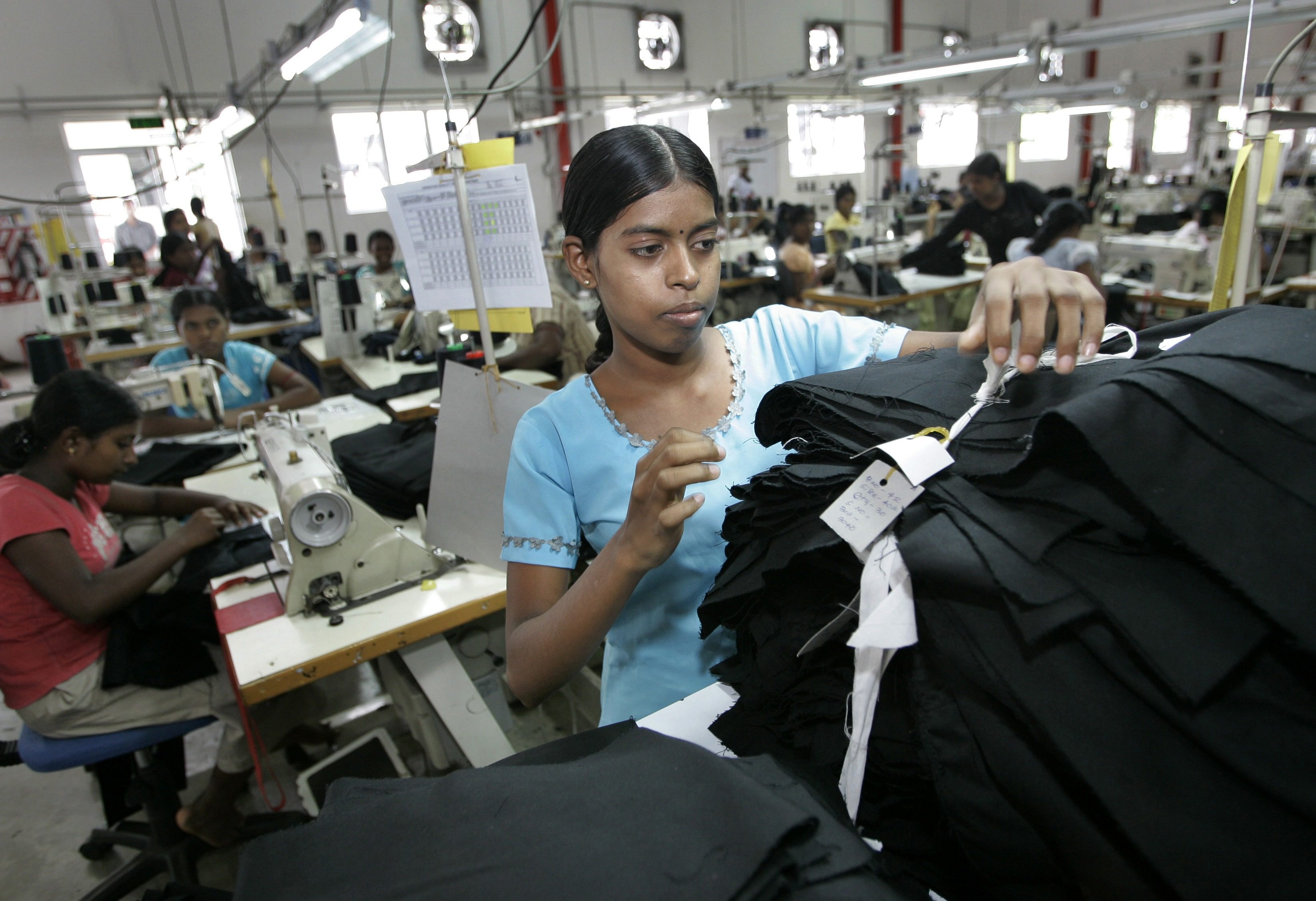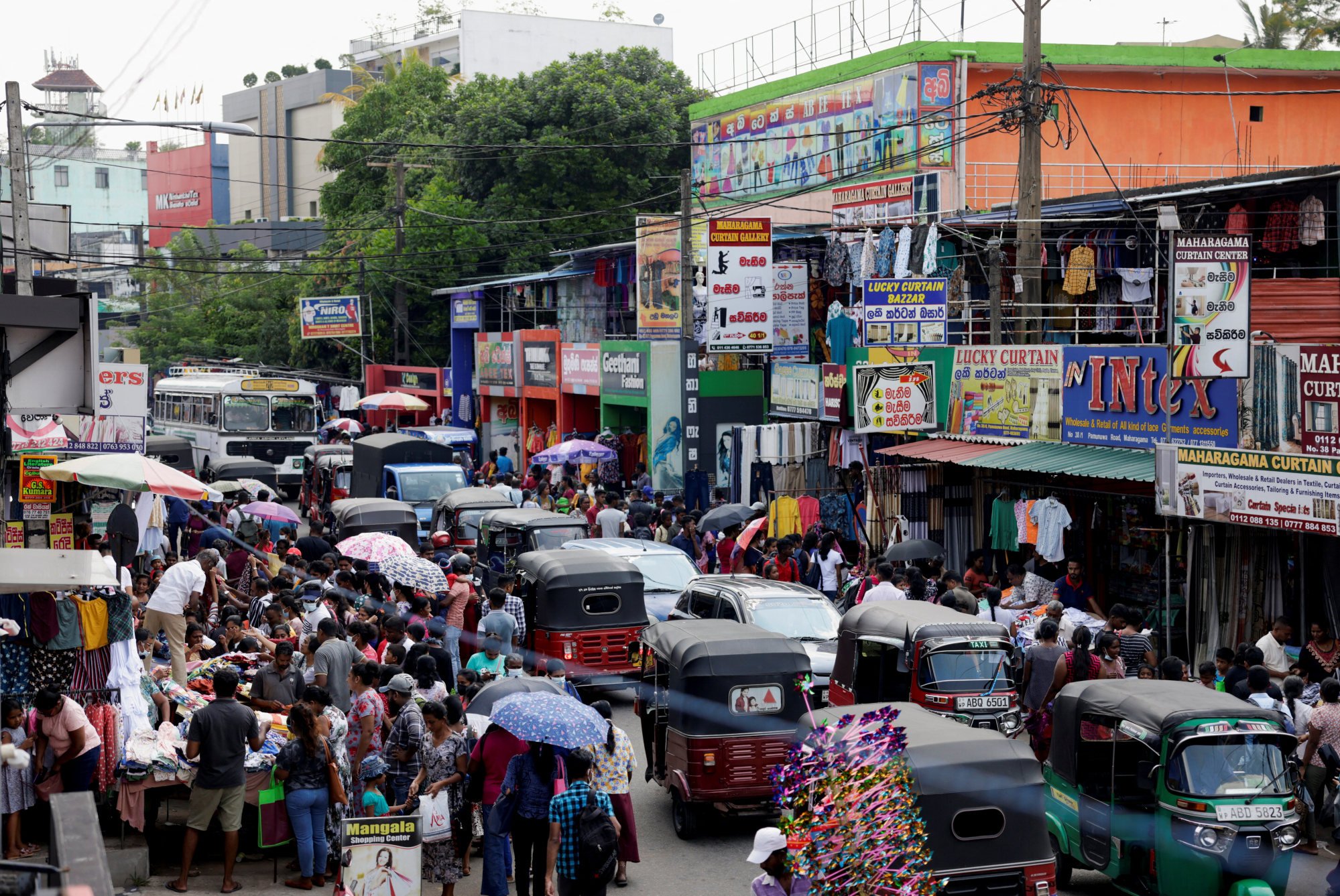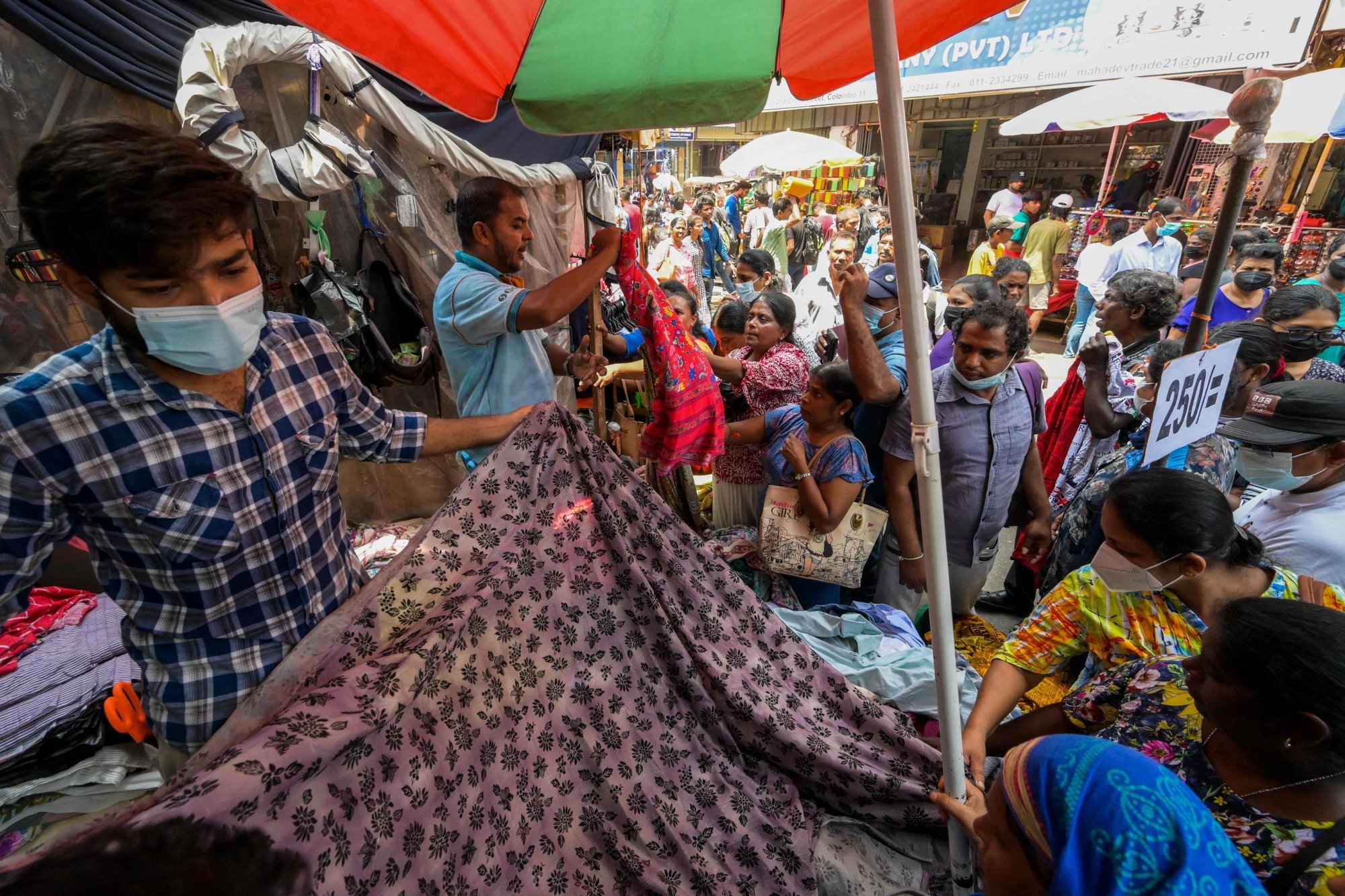Sri Lanka workers in limbo after UK garment factory abruptly shuts
Labour rights advocates say Next Manufacturing’s move violated Sri Lankan law and risks undermining the country’s fragile economic recovery

On a Monday morning that began like any other, Nandani*, a machine operator at the Next Manufacturing factory in Sri Lanka’s Katunayake Free Trade Zone, was unexpectedly asked to go home early. Later that day, the news came – not in a meeting or an official letter, but via WhatsApp.
The factory was shutting down. Permanently.
“I am 49 years old. My livelihood suddenly ended. I don’t know what to do,” said Nandani, who had worked for 19 years at the Next factory.
Like Nandani, more than 1,400 of roughly 2,800 workers were blindsided by the abrupt closure of Next Manufacturing, a subsidiary of the British retail giant Next. The company blamed “increasingly high operating costs” in a media release dated May 19.
Next Manufacturing’s parent company had reported more than £1 billion (US$1.35 billion) in pre-tax profits in the last financial year.
Labour rights advocates say Next Manufacturing’s closure has violated Sri Lankan law and risks undermining the country’s fragile economic recovery, as global firms rethink their footprint in post-crisis economies.
Under Sri Lanka’s Termination of Employment of Workmen (Special Provisions) Act, factories cannot shut down without either prior consent from workers or formal notification to the labour commissioner, followed by a negotiated settlement.
According to the Deputy Minister of Labour Mahinda Jayasinghe’s statement in parliament, they were informed on the 20th, but not before the factory’s closure.
Swasthika Arulingam, a human rights lawyer and labour rights advocate, said she was concerned Next Manufacturing’s closure could set an unwelcome precedent.
According to her, international companies come to third-world countries for cheap labour, but cut and run when the environment becomes unfavourable for operations.
“This same pattern could be followed by other companies and other factories,” she said, adding that this would leave the country in a crisis as unemployment would be on the rise, but none of the companies involved would be held accountable.

She acknowledged that no company would be forced to continue operations, but stressed that following proper procedures would mitigate the economic shock of mass lay-offs, as “1,400 [lay-offs] is a big number for Sri Lanka”.
Next Manufacturing, which had been in Sri Lanka for decades and located near Colombo’s international airport, was part of a network of garment factories central to the country’s export economy.
The apparel sector employs roughly 15 per cent of Sri Lanka’s industrial workforce and in 2024 contributed about 42 per cent of the country’s export earnings. By April this year, it had generated US$344.4 million in revenue year on year.
When This Week in Asia contacted Next Manufacturing director David Reay to elaborate more about the closure and the alleged lack of notice, he declined to comment beyond the official statement.
Next Manufacturing’s media release said it would offer the workers a severance package ranging from two months’ pay to a maximum of 2.5 million Sri Lankan rupees (US$8,350).
Sri Lanka’s labour department and the Board of Investment are currently in discussion with Next Manufacturing about the factory closure.
Nandani, and other workers who spoke to This Week in Asia under condition of anonymity, said many of them signed documents to receive compensation from the company. These documents included clauses stating that they resigned voluntarily, which Nandani did sign.
But Chamila Thushari, programme coordinator at Dabindu Collective, a Sri Lankan group advocating for rights of the apparel factory workers, confirmed that the workers had not given consent to resign voluntarily ahead of the closure.
“They have not filled employment termination documents,” she insisted.
Thushari noted, however, that most of the affected workers were asked by Next Manufacturing this week to sign forms regarding a voluntary retirement scheme when discussing compensation.
“Next has informed the workers that 36 per cent of the settlement would be initially on hold for tax purposes,” she said.
It was not specified how long the settlement would be on hold.
However, this would leave the women affected by the lay-offs with barely anything despite having been employed for two decades, Thushari said.
“This is a serious problem. They live pay cheque to pay cheque. And age makes it difficult for some of the older women to find jobs.”
Next, being a prominent international brand, should have given more consideration to the welfare of the workers at the heart of manufacturing, she said, noting that they risked their lives during the Covid-19 crisis to keep the factory running.
Yohan Lawrence, secretary general of Sri Lanka’s Joint Apparel Association Forum, said wages that had been “negotiated to a very high level” through union action had played a role in the increasing costs leading to the closure.

Thushari disputed his claim, saying that a worker employed for close to two decades at the factory would earn close to 50,000 rupees a month – a rate falling within the average Sri Lankan pay scale and not at the higher end.
The factory had also not tried to negotiate to bring wages down and minimise losses, said Dhanusha Gihan Pathirana, an economist from the Institute of Political Economy, a Colombo-based think tank.
Sri Lanka’s apparel industry remained resilient throughout the Covid-19 pandemic, but later lost some of its market share to manufacturing destinations such as Bangladesh, with more beneficial trade and duty schemes.
The Next Manufacturing factory closure, however, has left workers like Nandani in limbo and worried about their future.
Originally from Koslanda, a village in the eastern hills of Sri Lanka, Nandani is part of the migrant workforce employed at the Katunayake Free Trade Zone.
“Even if I return home, I am not sure whether there will be any labour work available, because I have been [outside] for years,” she said.
*Name changed to protect identity